Start the NUB-Application Process Today
YOUR FAST TRACK INTO THE GERMAN HEALTHCARE MARKET
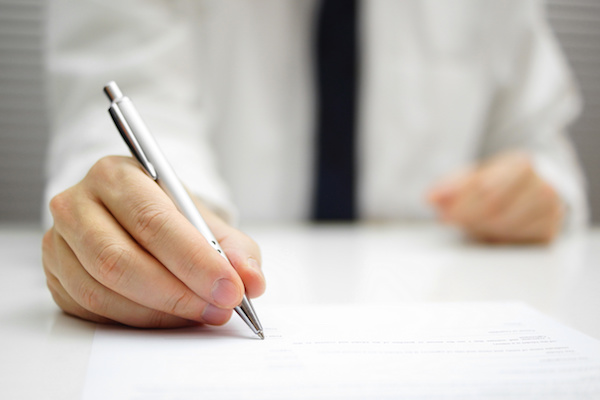
Are you thinking of employing the NUB-Process in Germany to assist in your market access? Then the time to start is now!
The deadline for all hospital applications regarding the NUB-Process is on October 31st each year, but due to the §137h SGB V legislation, things have changed in recent years.
Within this legislation, all first time applicants are being checked if their method is a member of a certain risk class, is especially invasive, and includes a new scientific or theoretical concept. Kalms Consulting can evaluate together with you; so see if the method your product is using in will fall into these categories.
If this is the case, the method will be checked by another regulatory institution (the G-BA) for patient benefit. For this purpose, the G-BA will ask for more information and will ask the IQWiQ-Institute for an assessment. This process needs to be thoroughly prepared. This is why we recommend to start as early as possible with a self assessment if your product will be covered by the §137h SGB V legislation and the consequences of this legislation.
All information from the original application and the statement from the IQWiQ will be weighed by the G-BA and the InEK to decide until January 31st ,in the following year, about the submission.
Another reason for starting the NUB-process internally now is the support you would like to have for such an application. Medical societies relevant to the field of the application can be very important supporters of the application. Usually, they want to review the application prior to submission. If the review is positive, they will coordinate other hospitals to apply with the same application, thus increasing chances of acceptance. So even if you are sure your product is not covered by §137h SGB V legislation, a thoughtful prepared NUB-campaign will help you in the long run. Please contact us if you have any questions on these items.
INSET: What is NUB (Repeat from previous Newsletter):
INSET: What is NUB (Repeat from previous Newsletter):
NUB stands for new and innovative diagnostics and treatment methods. To be part of this reimbursement program for hospitals your method (not necessarily the device itself) has to be
1) New
2) Not properly financed by the German DRG lump-sum system.
The NUB-program accepts applications from hospitals. All applications have to be submitted by October 31st each year to be considered. There is a web-portal to submit the application. The InEK Institute is the recipient of the applications.
There are four possible decisions on each application:
- NUB Status 1: The Application is granted.
- NUB Status 2: The application is rejected.
- NUB Status 3: The decision on the application ispostponed.
- NUB Status 4: The Application was not informativeenough, therefore no decision is made.
After the NUB-Application has been granted (NUB-Status 1), this does not guarantee automatic extra-reimbursement. Each hospital has to negotiate with their payers (SHIs) about the reimbursement for the procedure. Usually, a case number or a budget is negotiated, which is then valid for one year. Moreover, some hospitals also negotiate with a NUB-Status 4.
NUB-Applications can be repeated every year without any limit. Additionally, every granted application is automatically considered for an inclusion in the DRG lump-sum system the following year.
Every application has to describe the new procedure and their implications for patients, costs and hospitals. Strong focus has to be put on the proof that the method is new and innovative; as well as noting the cost implications. For support, please ask your Kalms Consulting consultant.
A case study on successful NUB inquiries
Bridge Reimbursement Towards Regular Hospital Reimbursement
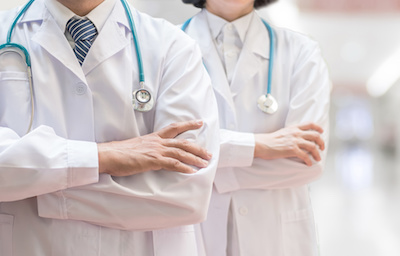
Neurostimulation of the peripheral nervous system (PNS) is a well-established therapeutical approach for functional-anatomical diseases
The majority of these illnesses are centered around pain. Furthermore, the method is successfully employed in the treatment of epilepsy, incontinence, gastroparesis, sleep apnea in both obstructive and central forms, or therapy for refractory hypertension. More indications are researched continuously. Mode of action of the therapy is the stimulation of a target nerve; whose reaction is triggering the therapeutic effect.
To inflict the stimulation at the target nerve, one or more electrodes are implanted, which are traditionally directly connected to the impulse generator, which is implanted as well. This generator is pacemaker sized and must be carried by the patient for as long as the treatment has indicated; even when there is no stimulation active.
These “fully-implantable” systems require a hospital stay with substantial surgery. Moreover, subsequent surgeries are needed to replace the batteries in the generator upon depletion.
Finally, the “fully-implantable” Neurostimulators are not yet fully compatible with modern imaging techniques, such as MRI, thereby reducing diagnostic options for patients.
These disadvantages led to numerous research activities into systems where vital parts are extracorporeal; provided the target nerve does allow this approach. The first research option was to move the energy – delivery unit, i.e. the battery, outside of the body and transfer the energy to the implanted impulse-generator via induction by placing the battery unit onto the body, close to the implanted impulse-generator and electrode.
The German OPS-Code specifies this transcutaneous energy delivery solution also as “fully-implantable”, leading to a reimbursement that accords to the DRGs with on-top supplementary reimbursement for the implant procedures (so-called “Zusatzentgelt” (ZE)).
An innovative breakthrough is the technical solution to only implant the electrode and exclude the impulse generator, as well as the battery, from the implanted parts by placing them in the extracorporeal device. This enables completely new approaches, since the surgery to implant the electrode can be done to be minimally-invasive. The electrode at the target nerve functions as a passive antenna and receives stimulation impulses from the external impulse generator transcutaneously.
These systems are called “extracorporeal” neurostimulators. The world’s first system to employ this technology is the Bioness StimRouter, which became CE-marked in February 2014.
Kalms Consulting and Bioness have been collaborating since 2015, after it became obvious that the existing reimbursement options for “fully-implantable” neurostimulation systems do not fit to the new and innovative “extracorporeal” neurostimulation concept, neither formally for procedural coding nor regarding the overall reimbursement of the method. Kalms Consulting inquired the appropriate health authorities. DIMDI confirmed that there is no specific code matching the procedure. InEK stated that the existing ZE schedule of neurostimulation systems for the PNS would not be eligible with the new method. It appears that there is still a long formal pathway ahead; requiring specific expertise to be finally successful.
In conjunction with the aim to adequately represent the possibilities of the new method economically and regarding the patient benefits, Kalms Consulting developed a strategy to obtain an appropriate regular reimbursement for all necessary treatment steps involving the StimRouter system in hospital and in outpatient settings; using fast tracks whenever possible.
Reaching the goal
In 2015, this goal was far away; even though the product, the method, and its advantages were already compelling at this time.
The necessity to employ the full toolset of market access options and actions in Germany resulted in the need of specific expertise; which cannot always be constantly kept ready in an entrepreneur company like how Bioness was with the StimRouter. The “Operation StimRouter” needed qualified expert support.
Already three years after the initiation of the collaboration, the StimRouter obtained the NUB-Status 1 (extra reimbursement required is negotiable between hospital and payers) as the only product in the class of “extracorporeal” neurostimulators, already with the first NUB inquiry made by interested hospitals.
Appearing to be a long time to some extent, it is actually one of the best “fast-track” successes for Germany.
To achieve this extremely positive outcome, significant measures were required to overcome obstacles (fulfill preconditions):
- The OPS-Proposal submitted by the German Society for Neuromodulation paved the way to obtain specific OPS-Codes, valid from January 1st, 2018. Without these codes, the NUB Inquiry would have been very likely unsuccessful.
- Prior to having hospitals submit NUB Inquiries for 2018, it was necessary to clarify the status of the method “extracorporeal neurostimulator” regarding its relevance for the newly established law §137h SGB V. This had to be done via consultation and decision of the G-BA. A negative vote would have meant at minimum a year-long delay with unclear bridge-financing. Kalms Consulting did the consultation and coordination of the process with G-BA for Bioness.
- After the G-BA decision hospitals could participate at the NUB Inquiry process without further G-BA involvement. Kalms consulting coordinated the NUB Inquiries from the interested hospitals, instructing the hospitals to understand the G-BA decision and its implications for their negotiations with health insurances.
- Finally, it became important to initiate and moderate from the beginning the participation at the DRG-proposal process. This process is to be worked on in close collaboration with involved medical societies. Kalms Consulting suggests and drives this process to create sensitivity for the new methods at the InEK from the earliest possible stages on.
Establishing the NUB-reimbursement
This report is therefore only an interim report to celebrate the successful NUB-Status 1 as a first milestone. The negotiations with health insurances to establish the NUB-reimbursement are underway, and are not to be influenced by the manufacturer or other third parties. We hope for a successful negotiation which allows the expanded use of the innovative method based on the StimRouter product in Germany.
Depending on the outcome of the DRG-proposal for 2019, submitted in February 2018, we expect a second round of NUB Inquiries for 2019 will be required; those will be due to submit in October 2018.
The goal, a generally sufficient DRG reimbursement for StimRouter in hospitals could be reached in 2020, i.e. 5 years after entering the market.
The main challenge, however, is the utilization of the StimRouter “to its best”, i.e. enable the implant of the StimRouter lead for suitable patients in an a outpatient setting, without hospitalization and associated higher cost for the implant procedure.
The paradigm to overcome is on a higher level. As of today, surgeries related to “fully implantable” PNS- neurostimulation systems are – with good reason – generally not allowed to be reimbursed in the ambulatory sector using the EBM-codes. StimRouter is the first PNS approach to innovate these procedural requirements and achieve a win-win for patients and payers as additional benefit. Although this seems to be so obvious, and safety and efficacy of this approach could be witnessed, the reimbursement authorities insist in the availability of adequate evidence to at least prove the POTENTIAL and the BENEFIT of the method by evidence meeting the formal requirements of evidenced based medicine and moreover by those of the authorities in Germany.
Right now, we are working diligently on a strategy to shift this paradigm to the advantage for everyone involved: patients, physicians, payers and – last not least – our client. We will keep you posted.
Medical Technology Licensing
A HIGHLY EFFICIENT MEANS TO UNLEASH THE POTENTIAL OF AN INVENTION
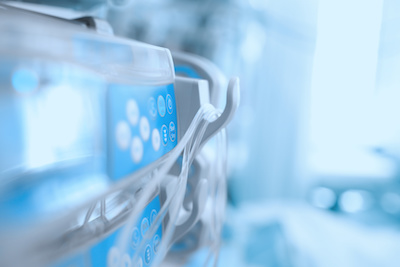
What is a license?
A license is a form of permission to use intellectual property granted by the inventor or owner (the licensor) to a commercializing party (the licensee).Licensing is considered a highly efficient means to unleash the potential of an invention.This is because the licensor is freed the time and cost to build multiple commercial channels in various fields-of-use, and the licensee is freed from the time and cost to invent, reduce to practice, and protect innovations of value in their markets.
In order to achieve these efficiencies, a license agreement between the licensor and licensee is developed jointly.A license agreement defines the rights of the licensee to use the technology and the responsibilities of the licensee to bring the technology to market and to compensate the licensor. In the field of medical technology commercialization, the licensed intellectual property is usually one or more patents, but it can also be know-how, trademarks, or copyrighted materials such as software.
CAN THEIR BE MORE THAN ONE LICENSEE?
Yes, license agreements can be either exclusive, or non-exclusive.The license agreement defines the field-of-use, (e.g. cardiology, neurology, urology…), and the geography, (Europe, N. America, global…).Within each field-of-use and geography intersect, the license can be exclusive, (only one licensee is allowed), or non-exclusive (multiple parties can have the same opportunity to commercialize).
In general, if the greatest element of risk is in the invention, the more likelihood there is that agreements will be non-exclusive.Contrarily, if the greatest expense and risk is in commercialization, the greater the chance that the agreement will be exclusive.
It is not uncommon for agreements to offer exclusivity, so long as key milestones are attained, and for the agreements to convert to non-exclusive, if milestones are not met.
HOW DO LICENSEES PAY LICENSORS?
License agreements come in many different forms, (and payment amounts), but most agreements reward the licensor in some or all of the following ways:
- An upfront ‘technology access’ fee for the right to put the invention to use
- Milestone payments, as key steps toward commercial success are achieved
- Royalty payments – a percent of revenue earned by the licensee that is attributable to the licensed intellectual property
Establishment of the terms, and timing, of payment are the key elements for a highly experienced licensing specialist to help assist the client.Establishment of comparator fees, payment and royalty rates, and the definition of milestones, are critical to safeguarding the interests of the licensor and licensee.
Kalms Consulting’s associated partner Joe Hofmeister is a medical device executive, with 25 years of experience launching medical devices globally, with special expertise in N. America, Europe and Japan.His experience spans the urologic, gynecologic, neurosurgical, orthopedic, and wound care fields.After many years in medical device commercialization, he led the University of Minnesota’s medtech technology licensing area.
If you have any questions related to licensing or if you would like us to support your medical technology licensing goals, you are very welcome to contact us at sbinder@kalmsconsulting.com
Successful Roadshow to California, Minnesota and Massachusetts
VISITING FRIENDS AND PARTNERS IN THE U.S.A.

U.S.A. Roadshow
From May to Early June 2018, we set off on our latestKalms Consulting roadshow. Here, we met with many new and existing clients; as well as many of our friends and partners in the USA.
It was great to meet so many new and different peopleand to learn about new ideas (ranging from very early stage to post commercialization); all of which have the potential to lead to successful products in the near and mid-term future. Although every discussion thattook place was different in content, some themes andtopics where present in nearly every one of them. The
most prominent topic was the new Medical Device Regulation (MDR) and how this will affect Europeanmarket access in the future.
Kalms Consulting is in the perfect position to provide support to questions related to the upcoming changes and all steps that need to be taken to be prepared. Next to this, we are addressing the political impact ofthe new MDR and questions related to market accessof innovative methods. More details of our activities in this sector will be mentioned in our next newsletter.
We’ve just launched our brand new website
WE HOPE YOU WILL EXPLORE OUR NEW SITE TODAY TO SEE WHAT WE’VE DONE
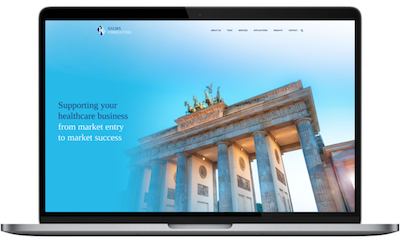
We are delighted to announce that our new website is now online.
As you may have noticed, our website has a new look! We hope you agree that it’s engaging and delivers the information you need to understand our services.For this project, we worked closely with DANGEROUS.Werbeagentur GmbH; our trusted digital marketing partner. With help from their excellent team, we have created a new site with improved features and functionality.
We hope you will explore our new site today to see what we’ve done! With the introduction of our new website, we will also be placing a stronger emphasis on our communication. Don’t forget to check backwith us frequently, as we are always posting news insights.
About
YOUR EXPERTS
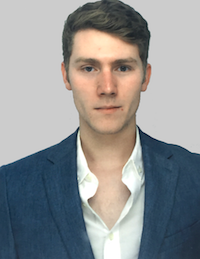
My name is Christian Minnie, and I am the newest addition to the Kalms Consulting team.
Originally, I am from the Minneapolis-St. Paul area; and now I am working as an intern in Berlin in order to develop my skills and expertise in the German / European healthcare industries.The main points I am focusing on and hoping to learn more about are in marketing, project management, market analysis, market entry strategies, and perfecting my german language skills. I am excited to see where this opportunity will take my future.
Dates
IMPORTANT MEETINGS & EVENTS
JUNE
- 26. Jahrestagung der Deutschen Gesellschaft für Pädiatrische Infektiologie (DGPI)
06/20 – 06/23/2018 / Cologne, Germany - Kongress Ernährung 2018
06/21 – 06/23/2018 / Kassel, Germany
JULY
- 18th European Congress On Biotechnology
07/01 – 07/04/2018 / Genf, Switzerland - 3rd International Conference on Cardiovascular Medicine and Cardiac Surgery
07/05 – 07/06/2018 / Berlin, Germany - 64th Annual ISTH SSC meeting
07/18 – 07/21/2018 / Dublin, Ireland - The Annual World Congress of Orthopaedics
07/25 – 07/27/2018 / Mailand, Italy
AUGUST
- World Cardiology Congress
08/09 – 08/10/2018 / Prague, Czech Republic - European Society of Cardiology
08/25 – 08/29/2018 / München, Germany - 17th European Congress of Internal Medicine
08/30 – 09/01/2018 / Wiesbaden, Germany
SEPTEMBER
- ESPEN Congress
09/01 – 09/04/2018 / Madrid, Spain - EUROSPINE 2018
09/19 – 09/21/2018 / Barcelona, Spain - DGAI Congress
09/20 – 09/22/2018 / Berlin, Germany - CIRSE 2018
09/22 – 09/25/2018 / Lisbon, Portugal - Medtec China
09/26 – 09/28/2018 / Shanghai, China
NOVEMBER
- MEDICA 2018 – World Forum for Medicine
11/12 – 11/15/2018 / Düsseldorf, Germany
Errors and omissions excepted.

